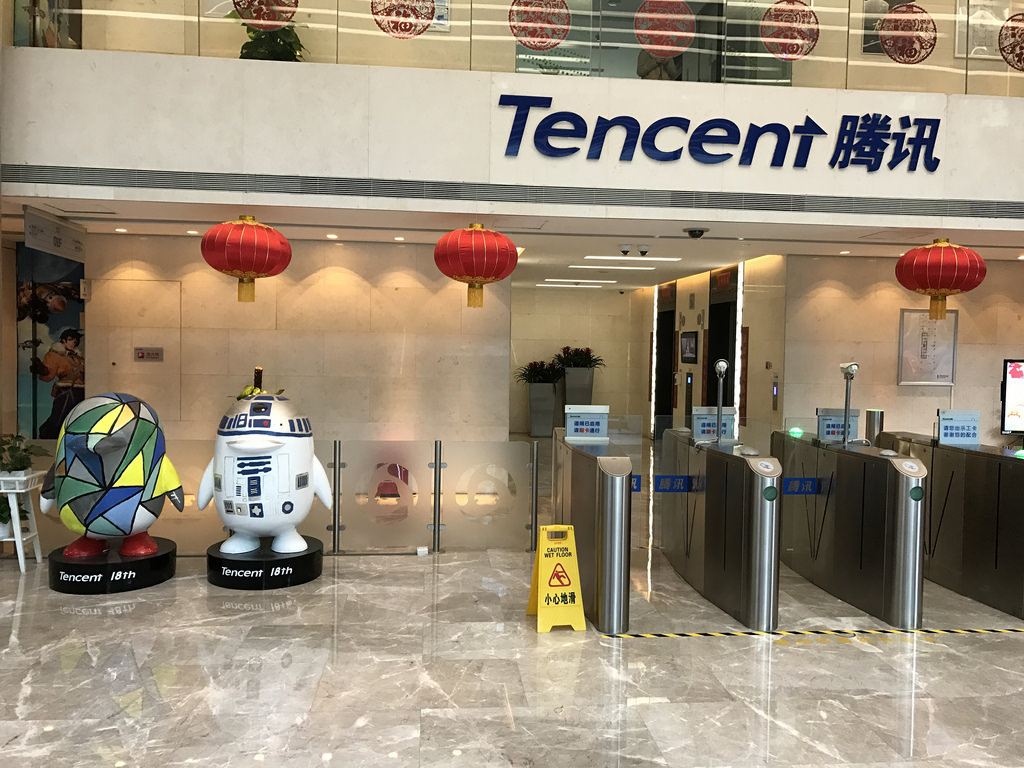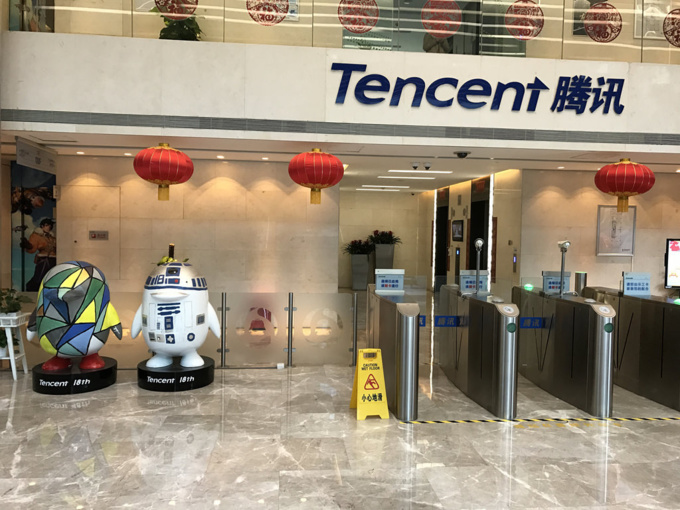The operator of the largest social network in China reported an increase in revenue in July-September by 61% to 65.2 billion yuan ($ 9.8 billion). The forecast assumed an increase in revenue to only 61 billion yuan. Revenue growth was the highest since 2010.
Tencent, the operator of the WeChat messaging service, which is distributed almost everywhere in China, continues to release popular games, while offering more advertising to its billionth audience of users. Mobile game Honor of Kings helped the company to increase revenue from smartphone games by 84% in the third quarter. Tencent, which acquired a 12% stake in Snap Inc., the owner of the Snapchat instant messenger, is now exploring new sources of growth through cloud technologies, financial services, movies and music.
"Games will continue to be a key source of revenue [of Tencent]," Benjamin Wu, an analyst with the Shanghai-based consulting company Pacific Epoch, told Bloomberg.
Tencent's net profit jumped 69% to 18 billion yuan and was more than expected 15.8 billion yuan.
The new advertising and financial business in WeChat also grew at a fast pace. This supports Tencent's desire to eventually become a major player in the advertising market, along with Alibaba Group Holding Ltd. or Facebook Inc. Sales of online advertising grew by 48% in the last quarter.
In the long term, the company invests billions of dollars in research into artificial intelligence to improve targeted advertising. In addition, it was reported that Tencent developed solutions for automated driving of cars, along with other areas in which the company operates.
Like Alibaba, Tencent mainly focuses on a fast-paced domestic market, but also takes steps to expand its presence abroad. The company also invests in music, e-books and streaming. This content is needed by Tencent to attract and retain users of social networks.
It's not quite clear what Tencent plans to do with its share in Snap. This acquisition, after an unsuccessful attempt to strike a deal with Whatsapp, may signal a new effort to develop business in foreign markets. Tencent said that it plans to share experience with Snap in terms of the development of social networks, as well as cooperate in the distribution of games.
In the third quarter, WeChat had 980 million active users per month, which is almost 16% more than a year ago. 38 billion messages were sent daily through this service. However, the number of users of the mobile version of QQ, another social network Tencent, decreased by 2.5% by the end of the last quarter.
Earlier, an expert of the HSBC banking holding in the Greater China region, Helen Wong, wrote in a September report that the new digital generation of Chinese "i-can-generation" could completely change the country's economy.
Rapid social and economic changes in China in the last three decades have led to the emergence of a new consumer. Years of economic growth have contributed to the fact that the current "i-can-generation" has gained new opportunities, along with the development of the digital economy in China, the core of which is the electronic trading platform Taobao and the WeChat messenger, the report says.
In fact, the Chinese "i-can-generation" leaped from the pre-digital era right into the era of the mobile Internet, skipping the stage of a personal computer. At the same time, its e-commerce activity formed one of the world's largest digital economies and served as the foundation for a new generation of Chinese IT companies that now have a significant impact on the world stage.
source: cnbc.com
Tencent, the operator of the WeChat messaging service, which is distributed almost everywhere in China, continues to release popular games, while offering more advertising to its billionth audience of users. Mobile game Honor of Kings helped the company to increase revenue from smartphone games by 84% in the third quarter. Tencent, which acquired a 12% stake in Snap Inc., the owner of the Snapchat instant messenger, is now exploring new sources of growth through cloud technologies, financial services, movies and music.
"Games will continue to be a key source of revenue [of Tencent]," Benjamin Wu, an analyst with the Shanghai-based consulting company Pacific Epoch, told Bloomberg.
Tencent's net profit jumped 69% to 18 billion yuan and was more than expected 15.8 billion yuan.
The new advertising and financial business in WeChat also grew at a fast pace. This supports Tencent's desire to eventually become a major player in the advertising market, along with Alibaba Group Holding Ltd. or Facebook Inc. Sales of online advertising grew by 48% in the last quarter.
In the long term, the company invests billions of dollars in research into artificial intelligence to improve targeted advertising. In addition, it was reported that Tencent developed solutions for automated driving of cars, along with other areas in which the company operates.
Like Alibaba, Tencent mainly focuses on a fast-paced domestic market, but also takes steps to expand its presence abroad. The company also invests in music, e-books and streaming. This content is needed by Tencent to attract and retain users of social networks.
It's not quite clear what Tencent plans to do with its share in Snap. This acquisition, after an unsuccessful attempt to strike a deal with Whatsapp, may signal a new effort to develop business in foreign markets. Tencent said that it plans to share experience with Snap in terms of the development of social networks, as well as cooperate in the distribution of games.
In the third quarter, WeChat had 980 million active users per month, which is almost 16% more than a year ago. 38 billion messages were sent daily through this service. However, the number of users of the mobile version of QQ, another social network Tencent, decreased by 2.5% by the end of the last quarter.
Earlier, an expert of the HSBC banking holding in the Greater China region, Helen Wong, wrote in a September report that the new digital generation of Chinese "i-can-generation" could completely change the country's economy.
Rapid social and economic changes in China in the last three decades have led to the emergence of a new consumer. Years of economic growth have contributed to the fact that the current "i-can-generation" has gained new opportunities, along with the development of the digital economy in China, the core of which is the electronic trading platform Taobao and the WeChat messenger, the report says.
In fact, the Chinese "i-can-generation" leaped from the pre-digital era right into the era of the mobile Internet, skipping the stage of a personal computer. At the same time, its e-commerce activity formed one of the world's largest digital economies and served as the foundation for a new generation of Chinese IT companies that now have a significant impact on the world stage.
source: cnbc.com



















